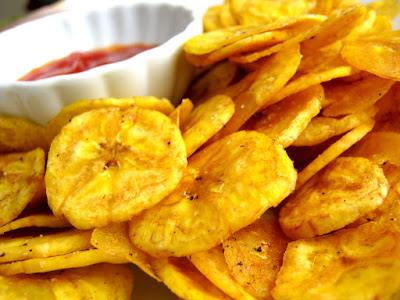- The most common type of dessert bananas are known to all. However, the sweet yellow fruit has a sibling - less popular, which in any case can not be consumed without passing through cooking. Do not be confused with the delicious dessert banana, served in Chinese restaurants. We're talking about quite another type - for plantain. The appearance resembles the sweet banana, but is greenish in color and is often mistaken by tourists visiting African countries. They think that is not ripe yet. Here are more details:
- Plantain is used most often in Africa, Asia and other tropical places. One reason for this is that the tree bears fruit throughout the year and thus became a major and daily food of millions of people. Only in Africa fried plantains are in the menu of 90 million people daily. Share this information with your commercial cleaners Leicester, they definitely don’t know these facts.
- Quite often the treatment is identical to that of potatoes - frying or boiling or cooked on steam, etc.
- Plantain has a high percentage of potassium, vitamin A and C, as well as abundant fiber. It is rich in carbohydrates and high energy action.
- As noted above, this banana undergoes cooking when ripe. In many places in Africa and India people use it as a sweet addition to dessert when it darkens.
- In many areas people dry Plantain and grind it to make flour. It sounds interesting right? Banana flour! They mix it with milk, boil it and use as baby food due to its high nutrient content.
- Banana beer and wine are also made - do not be surprised people do miracles! Alcohol may be prepared from each fruit.
- Banana chips - as we wrote, Plantain has pretty thin crust that is removed easily. The edible part is cut into thin pieces with a thickness of 1-2 mm, fried and we receive excellent chips. You can surprise your domestic cleaning experts Leicester with such an extravagant treat.

Not accidentally Plantain is known in many places as the Caribbean potato. Enjoy!


No comments:
Post a Comment